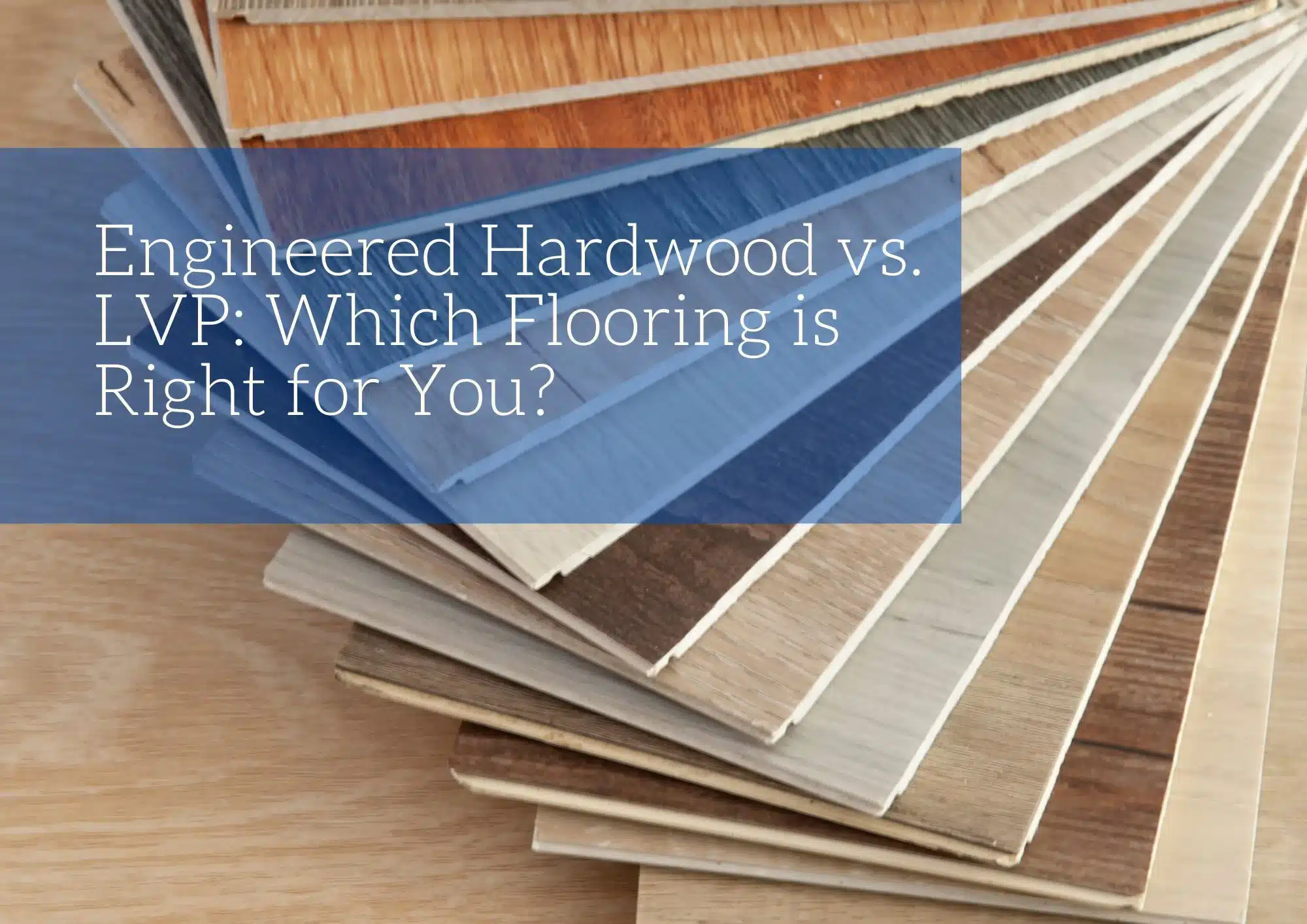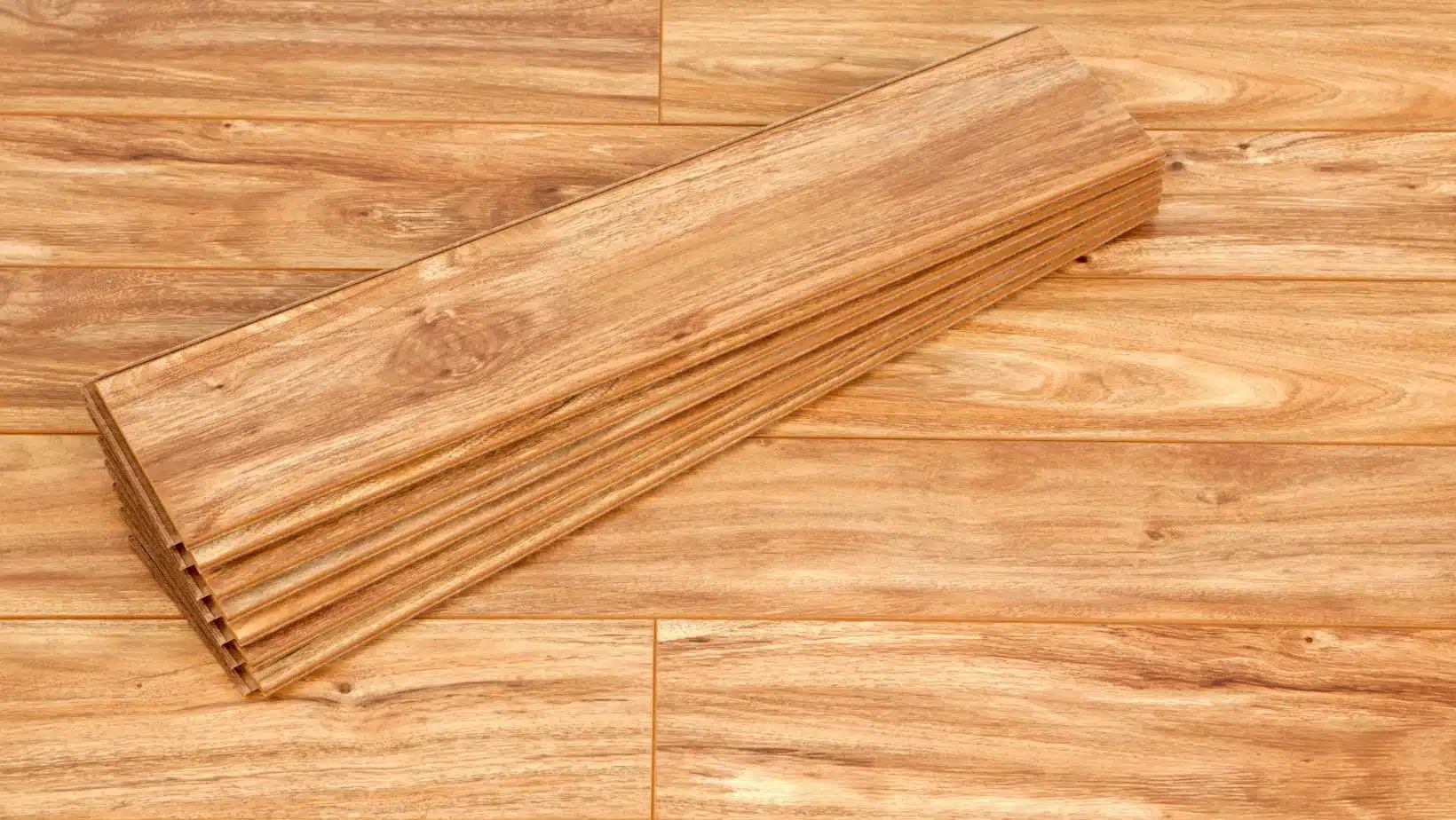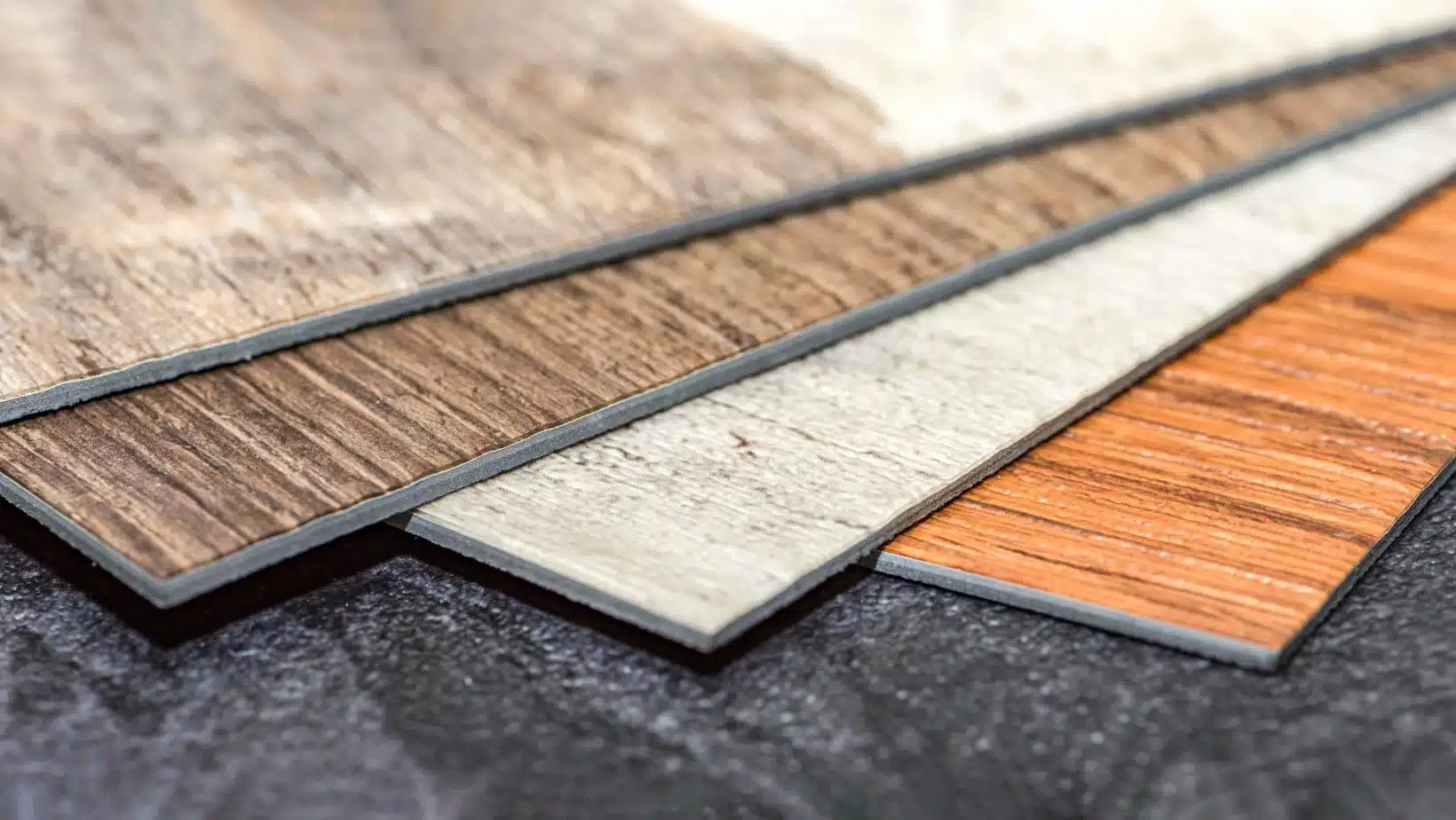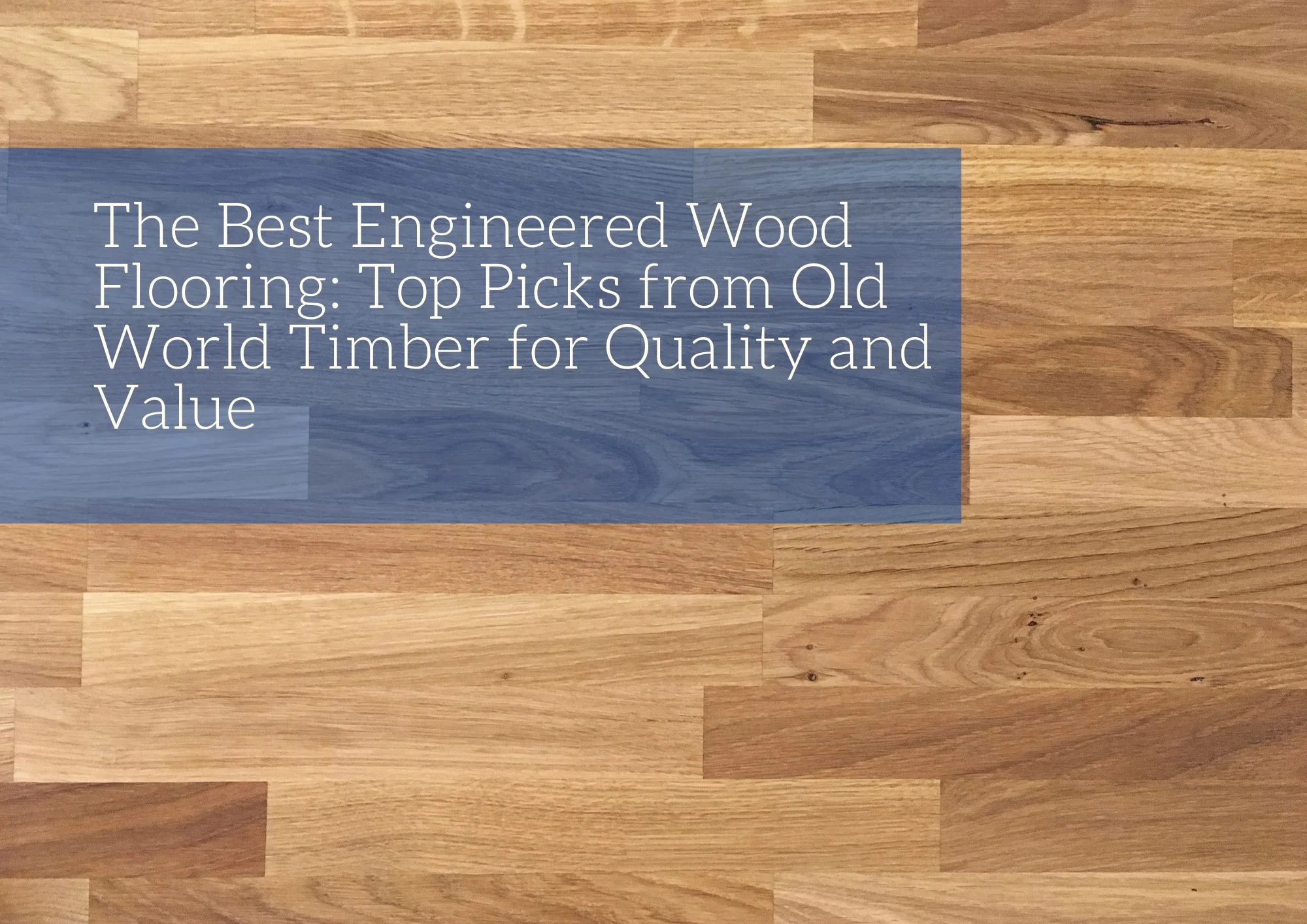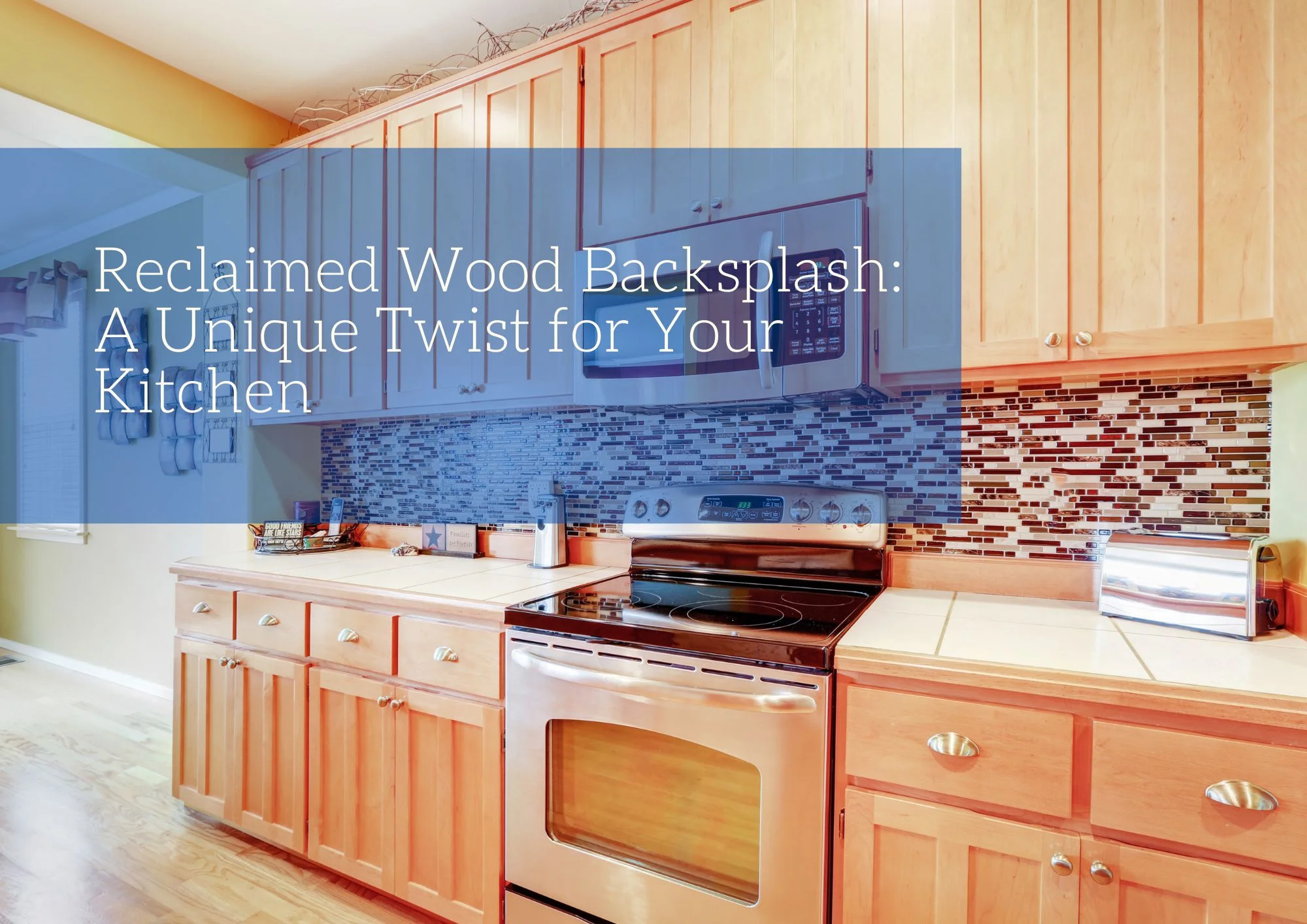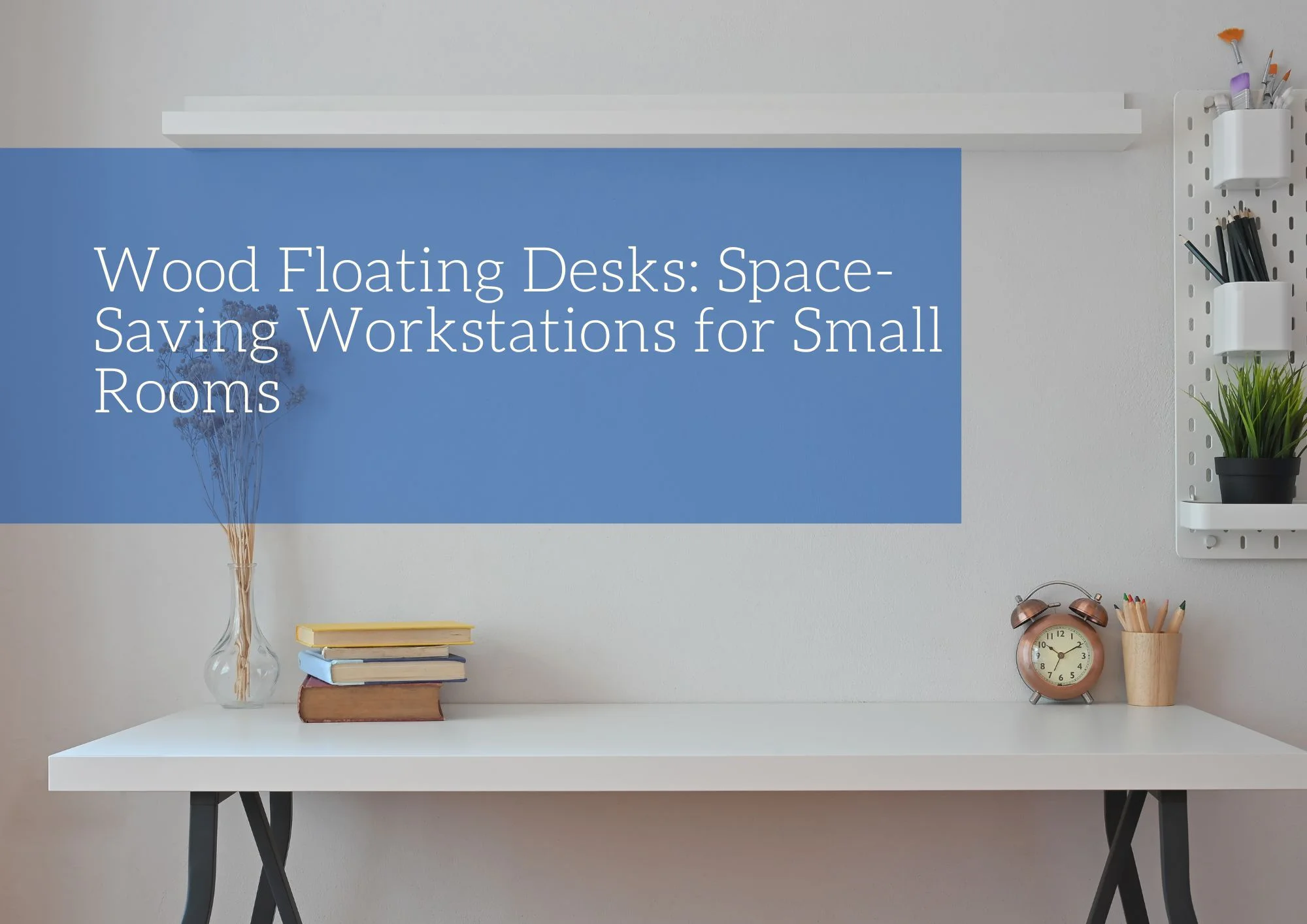When it comes to choosing the perfect flooring for your home, the decision often boils down to engineered hardwood and luxury vinyl plank (LVP). Both options offer distinct advantages, and the best choice for your home depends on various factors, including your lifestyle, budget, and aesthetic preferences. In this blog, we’ll explore the differences between each flooring type to help you make an informed decision.
Engineered Hardwood vs. LVP
What is Engineered Hardwood Flooring?
Engineered hardwood flooring consists of planks made from layers of different materials, primarily featuring a top layer of real hardwood. This outward hardwood layer is what you see and feel once the flooring is installed, giving engineered hardwood the same look and appeal as solid hardwood.
Beneath the hardwood layer, engineered hardwood planks typically include multiple layers of plywood or medium-density fiberboard (MDF). These layers provide stability and strength to the flooring, making it more resistant to moisture and temperature changes than solid hardwood.
Pros and Cons of Engineered Hardwood Flooring
Pros
- Looks Similar to Hardwood: Engineered hardwood features a real wood surface, making it visually identical to solid hardwood.
- Affordable: Generally less expensive than solid hardwood, while still providing a high-end look.
- Eco-Friendly Alternative: Uses less hardwood overall, making it a more sustainable choice.
- Dimensionally Stable: The layered construction makes it more resistant to changes in temperature and humidity, reducing the risk of warping.
- Long Lifetime: With proper care and maintenance, engineered hardwood can last for many years.
Cons
- Limited Water Resistance: Not suitable for areas with high moisture levels, as excessive water can damage the layers.
- Sunlight Fading: Some types of engineered hardwood may fade when exposed to direct sunlight over time.
- More Costly Than LVP: Generally more expensive than luxury vinyl plank (LVP) flooring.
- Refinishing Limitations: The ability to refinish the floor depends on the thickness of the hardwood wear layer, limiting the number of times it can be sanded down.
What is LVP Flooring?
Luxury Vinyl Plank (LVP) flooring is a versatile and durable flooring option designed to mimic the appearance of real hardwood. This multi-layered vinyl material features a transparent protective top layer that shields a printed image of wood, known as the design layer. This design layer gives LVP its realistic wood look, making it nearly indistinguishable from real hardwood flooring once installed. Additionally, the top layer is coated with aluminum oxide to protect against scratches.
The “P” in LVP, which stands for “plank,” differentiates it from other vinyl flooring options like sheet vinyl and vinyl tiles. This plank style allows LVP to replicate the length and width of traditional hardwood planks, enhancing its appeal.
Pros and Cons of LVP Flooring
Pros
- Affordable: LVP is cost-effective compared to many other flooring options, giving excellent value for the price.
- Easy Installation: Many LVP products feature a click-and-lock system, making the DIY installation straightforward.
- Very Durable: LVP is resistant to scratches, stains, and moisture, making it ideal for high-traffic areas.
- Low Maintenance: Requires minimal upkeep—just regular sweeping and occasional mopping.
- Suitable for Floating Floor Installation: Can be installed over most existing floors without glue or nails.
- Flexible Subfloor Requirements: Does not require a perfectly level subfloor, simplifying installation.
Cons
- Difficult to Remove: If glued down, LVP can be challenging to remove.
- Susceptible to Fading: Some types of LVP can fade when exposed to prolonged direct sunlight.
- Potential Dents: Can dent under the weight of heavy furniture or appliances.
- Cannot Be Refinished: Unlike hardwood, LVP cannot be sanded down and refinished.
- Shorter Lifetime: Generally has a shorter lifespan compared to higher-end flooring options like hardwood.
Differences Between Engineered Hardwood and LVP
Durability
Both engineered hardwood and luxury vinyl plank (LVP) are durable flooring options, but they each have unique strengths. Engineered hardwood is more resistant to dents and divots, making it a robust choice for areas with heavy furniture. Conversely, LVP excels in scratch resistance, making it a better investment in households with active children or pets. However, engineered hardwood is better suited for supporting large furniture and heavy items without sustaining damage. Consider your specific needs to determine which flooring solution is right for your home.
Appearance
Both LVP and engineered hardwood are excellent at simulating the look of solid hardwood flooring. However, if you seek the closest approximation to actual hardwood, engineered hardwood holds the advantage.
The untrained eye will struggle to distinguish between engineered and solid hardwood once installed, thanks to the top layer of real hardwood used in engineered options. In contrast, LVP achieves its hardwood appearance through a high-quality image. While both options are convincing, the authenticity of engineered hardwood’s surface makes it nearly indistinguishable from solid hardwood.
Maintenance
LVP is generally easier to maintain compared to engineered hardwood, although both types of flooring are relatively simple to care for. Both LVP and engineered hardwood can be swept, vacuumed, and wet-mopped, but it’s important to use minimal water when mopping engineered hardwood to avoid potential damage.
When using cleaning solutions, always adhere to the manufacturer’s guidelines for both LVP and engineered hardwood. If you cannot find specific instructions from the manufacturer or are unsure about the product, test it in a small, inconspicuous area before applying it to the entire floor. This precaution helps ensure compatibility and prevents potential damage.
Installation
LVP flooring is generally easier to install compared to engineered hardwood. However, with the right tools and DIY skills, both types of flooring can be installed without professional help.
LVP is notably user-friendly for DIYers because it can be easily trimmed to size with a utility knife. It is typically installed as a snap-together floating floor, which means it doesn’t need to be attached or bonded to the subfloor.
While some thinner engineered hardwood options also feature a click-lock system, most traditional engineered hardwood installations use a tongue-and-groove edge similar to solid hardwood. This type of engineered hardwood is usually nailed or glued down, adding a bit more complexity and length to the installation process.
Water resistance
LVP is generally more water-resistant than engineered hardwood, with many LVP flooring options being completely waterproof. This makes LVP an excellent choice for moisture-prone areas like kitchens, bathrooms, and basements.
Since LVP is made of vinyl, water won’t damage the flooring itself. However, the primary concern is water potentially seeping through the joints and reaching the subfloor. Waterproof LVP boards are designed to be impenetrable when installed correctly, minimizing this risk.
Engineered hardwood, while more water-resistant than solid hardwood, is not waterproof. The plywood layers in engineered hardwood provide better dimensional stability than solid wood, reducing expansion and contraction in response to moisture. Despite this, engineered hardwood is not ideal for areas that experience frequent water exposure.
Choosing between engineered hardwood and LVP ultimately comes down to your specific needs and preferences. If you value a natural, timeless look and are willing to invest in higher upfront costs, engineered hardwood might be the right choice. On the other hand, if you seek a durable, low-maintenance, and budget-friendly option with versatile design choices, LVP could be the perfect fit.


